My research journey led me to Vieques, a guest post by Talia Aikens-Nuñez
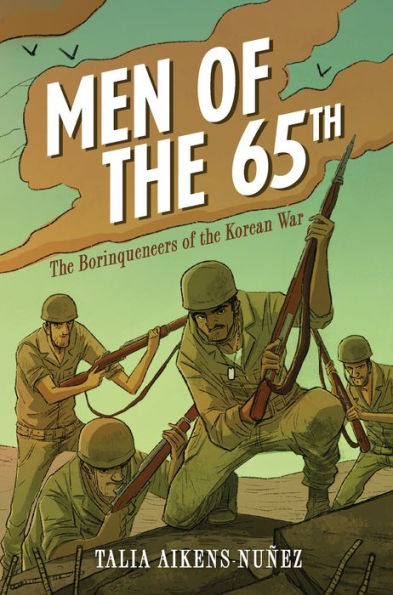
I spent months researching the 65th Infantry Regiment, whose battle name was the Borinqueneers, to write Men of the 65th. I watched documentaries on the unit, read memoirs by commanders of the unit, read military history books, read old articles, interviewed former Borinqueneers, read transcripts and watched interviews of former soldiers by the Veterans History Project through the Library of Congress, and read court transcripts from the largest mass court-martial in the Korean War. I wrote, edited, and re-wrote multiple sections of the book. But, I wanted to get more of a personal feel for the story. So, my family and I flew to Vieques, Puerto Rico.
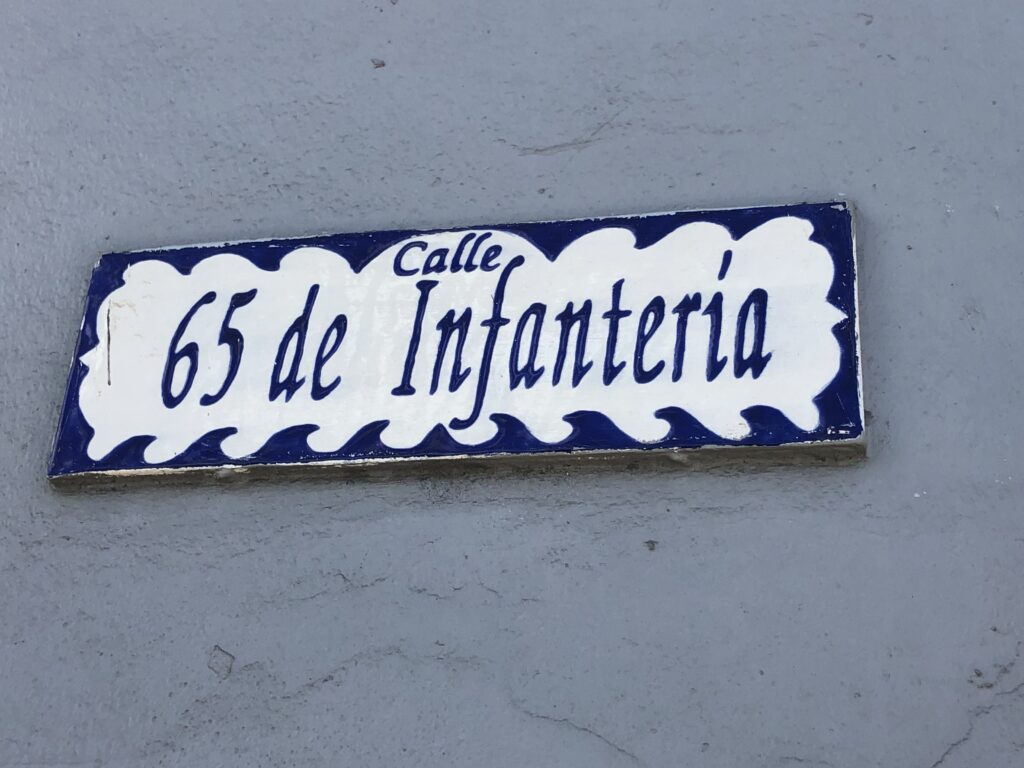
The tiny island sits right off the coast of the Puerto Rico mainland. Vieques is affectionately referred to as La Isla Nena (the baby girl island). In the book, I detail a large-scale training exercise and maneuver that the regiment participated in on Vieques called Operation PORTREX. This exercise and maneuver took place in 1950 right before the Korean War broke out. It was supposed to mimic a war. The Operation PORTREX script required the men of the 65th to act as the ‘Aggressors.’ They were to pretend that they captured Vieques and were to defend it from being taken back by the ‘Liberators’. The Liberators were some of the most decorated divisions from World War II. The Liberators consisted of navy, army and air force military men. The script called for the Liberators to push the Aggressors off the island. The Liberators outnumbered the Aggressors 4 to 1. It was not meant to be a fair fight. The men of the 65th strategized, planned and executed those plans to defend the island. They showed that they were a well-trained, strong and capable unit. They did not get pushed off the island.
ADVERTISEMENT
ADVERTISEMENT
I wanted to see the beaches that they used for the maneuver, understand the island and landscape further, and study any artifacts or pieces of history I could find. As soon as we arrived, we saw the beautiful swaying palm trees and the pristine beaches. The wild horses and chickens that roam the island greeted us without fear. The friendly horses trotted up to our car and gently took the fresh grown mangoes we picked from our hands. The wild chickens visited us while we ate at open air restaurants and happily nibbled on lettuce, carrots and fruit we gave them.
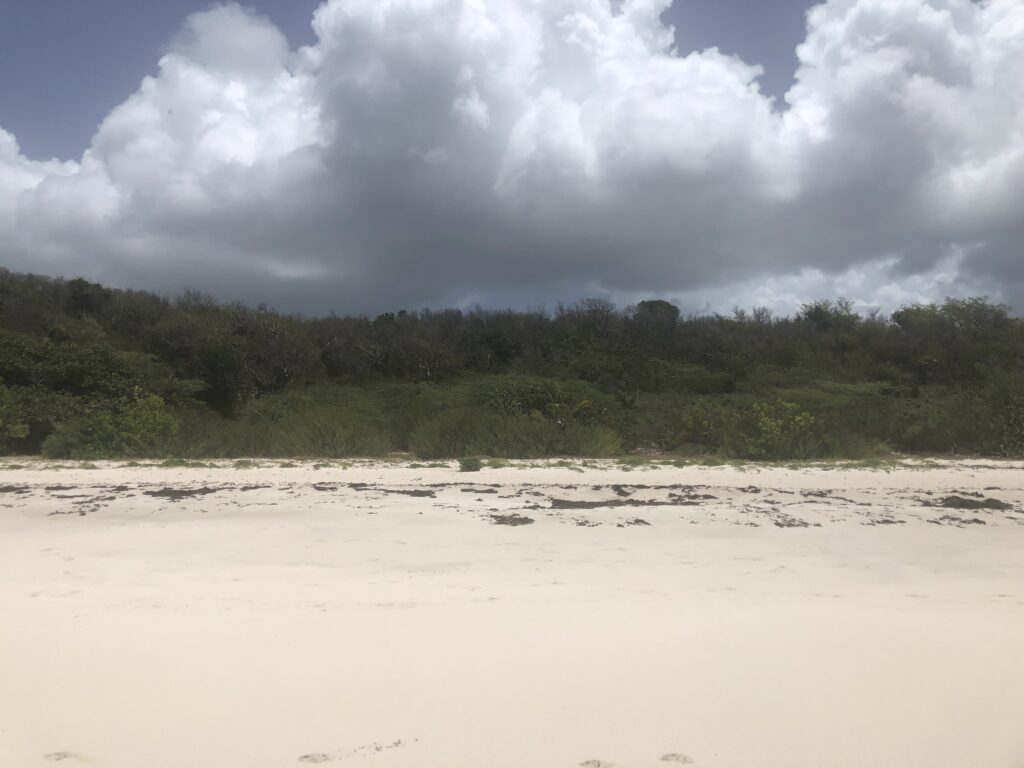
I visited Red Beach (which is now called Caracas Beach), Blue Beach (which is now called La Chiva), and Green Beach. The men of the 65th strategically used the island to their advantage for the exercise. I saw the palm trees that lined the beach and thought of how the soldiers used them to create barriers to keep the ‘Liberators’ from creating paths into the island. I felt the warm, Caribbean breeze and thought about how the men used the winds to their advantage to determine where the paratroopers would land and inflict mimicked casualties.
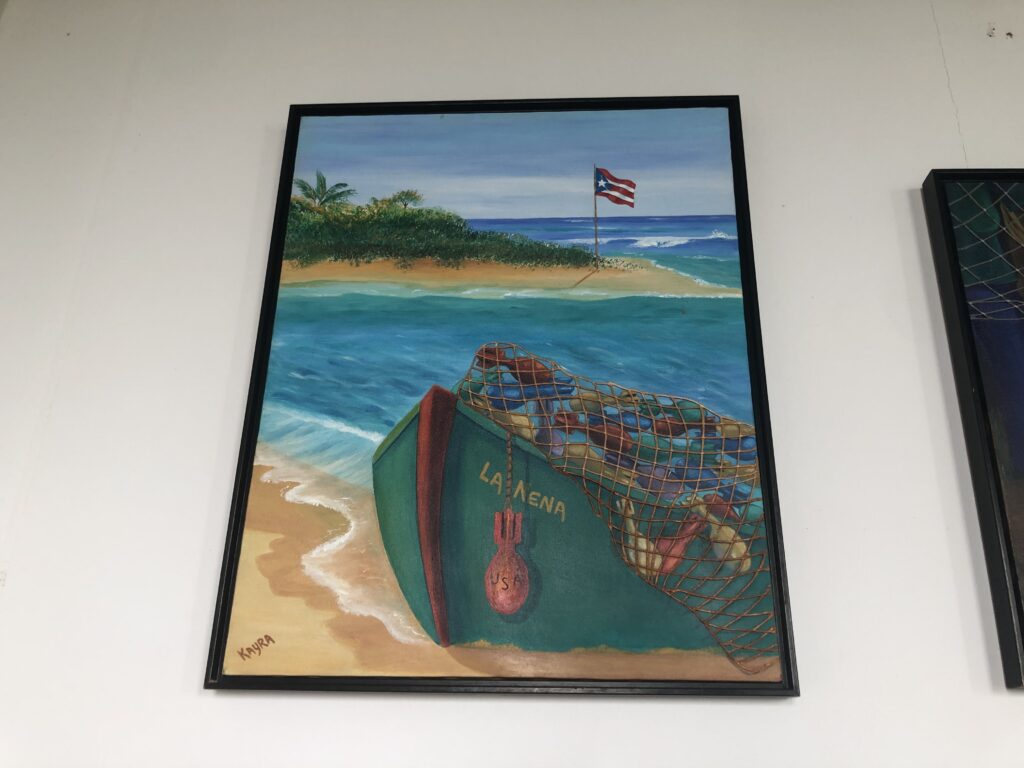
My research journey led me to the museum at Fortin Conde de Mirasol in Vieques. It is an old Spanish fort that was built in the 1800s that is now a museum that features history related to Vieques. Old cannons are displayed prominently along with rounds of ammunition and grenades. Some of these things were recovered in the waters surrounding Vieques. I saw old military rations, pictures of bomb tests that were conducted on the island, and artwork. The museum helped me see how small the food rations were and how large the grenades and weapons were.
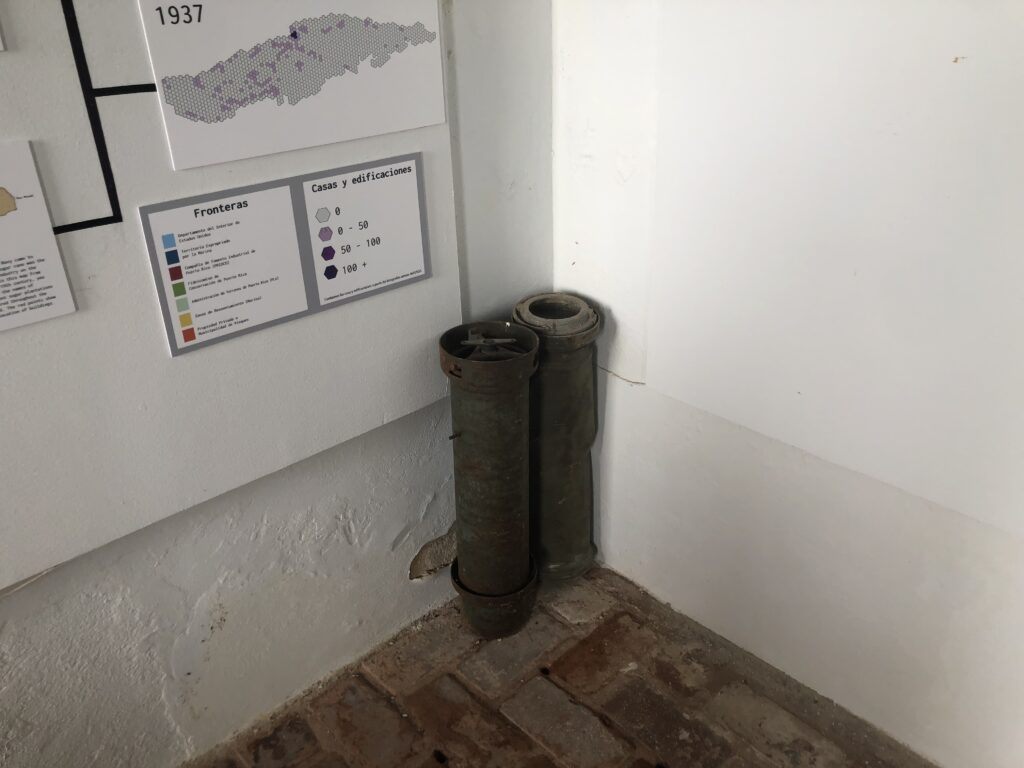
I also gained a basic understanding for the current and past struggle the people that live on the island grapple with today. From the 1940s, the United States used Vieques for exercises like PORTREX as well as bomb testing. Protests erupted on the island in 1999 after a civilian was accidentally killed by two misfired 500-pound bombs. People were also concerned about toxic contamination and chemical waste from the bombings, the polluted waters and oceans as well as increased rates of cancer. By 2003, the military left Vieques. Today, the U.S. Fish and Wildlife Service oversees the former military base. Residents I spoke to told me about the unnerving feeling when they hear a bomb detonated on the island. The military started using closed detonation chambers in 2021. Clean-up of the island is estimated to take until 2032 to clear the island of all of the munitions and contamination.
After the trip, I had a better understanding of Operation PORTREX. I also had a better understanding of the struggle that continues for the people that live on Vieques. The history and beauty of La Isla Nena will stay with me and my family forever. Hopefully readers of Men of the 65th will be as impacted by the story of the Borinqueneers as I was by visiting Vieques.
Meet the author

ADVERTISEMENT
ADVERTISEMENT
Talia Aikens-Nuñez is passionate about sharing with young readers the little known stories, accomplishments, and contributions of people of color from all throughout history. Aikens-Nuñez is the author of Small Nap, Little Dream, a bilingual Spanish/English picture book. She and her husband live on a river in Connecticut with their two children.
Facebook: https://www.facebook.com/TaliaAikensNunezChildrensWriter/
Twitter: https://twitter.com/talia_n
Website: https://www.kidslitbytalia.com/
About Men of the 65th: The Borinqueneers of the Korean War
Honor and Fidelity. That is the motto of the 65th Infantry Regiment, also known as the Borinqueneers, the only Puerto Rican unit in the United States Army.
Since the regiment’s creation in 1899, the men of the 65th have proudly served the US through multiple wars, despite facing racial discrimination. Their courage, loyalty, and patriotism earned them hundreds of accolades, including the Congressional Gold Medal in 2014.
But the honor and fidelity of the men of the 65th came into question in 1952, in the midst of the Korean War, when ninety-one Borinqueneers were arrested and tried for desertion and disobeying orders. How could this happen in one of the most distinguished and decorated units of the Army?
In this telling of one of the forgotten stories of the Korean War, author Talia Aikens-Nuñez guides us through the history of the Borinqueneers and the challenges they faced leading up to what was the largest court martial in the entire war. Rediscover the bravery of the men of the 65th through Aikens-Nuñez’s thorough writing and the soldiers’ firsthand accounts of the Korean War.
ISBN-13: 9781728479149
Publisher: Lerner Publishing Group
Publication date: 05/02/2023
Age Range: 11+
Filed under: Guest Post
About Amanda MacGregor
Amanda MacGregor works in an elementary library, loves dogs, and can be found on Twitter @CiteSomething.
ADVERTISEMENT
ADVERTISEMENT
SLJ Blog Network
Happy Poem in Your Pocket Day!
This Q&A is Going Exactly As Planned: A Talk with Tao Nyeu About Her Latest Book
More Geronimo Stilton Graphic Novels Coming from Papercutz | News
Parsing Religion in Public Schools
ADVERTISEMENT







